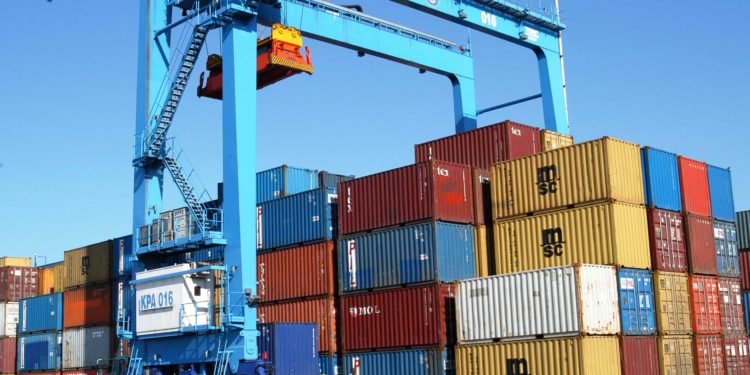A significant volume of the containers passing through the Inland Container Depot in Nairobi are not cleared with the free storage period despite the huge free space at the yard. The situation has been worsened by by Covid 19 pandemic which has seen the industry introduce new measures that have affected seamless flow of the cargo.
Data released by the Kenya Revenue Authority (KRA) on the status of the ICD for the week that ended yesterday indicates that 1774 Twenty Foot Equivalent Units (TEUs) have exceeded the 21 days stay at the facility and Peripheral Storage Areas (PSA).
Importers are required to clear cargo within the free storage period of four days. If they are not able to do this, they are granted 17 more days to clear the cargo but have to pay storage charges before the cargo is finally released from ICD. In case this is not done, KRA takes custody of the cargo, where Custom Warehouse Rent is charged before the cargo is finally cleared or auctioned to recover the costs and import duty.
The volume of the cargo that had overstayed for a period of between 22- 120 days stood at 581 TEUS, a 9 percent growth from 531 percent of the previous week. Cargo that has overstayed for between 121-999 days was the highest at 1086 TEUS with the cargo overstaying for over 1000 days at 107 TEUs, a 10 percent increase from 97 Teus of the previous week.
The yard utilization, which in most cases is blamed for delay in evacuation of the cargo at ICD is very low. As per yesterday, the utilization at the ICD yard stood at 25 percent.
The ICD yard has a capacity of 14,497 Teus. The yard utilization at the Mitchell Cotts PSA yard, where the cargo that has overstayed for over 21 days is stored, utilization capacity was at 13 percent while at the Nairobi Inland Container Terminal (NICT) utilization stood at 7 percent.
In total, the total yard utilization stood at 21 percent. Cargo dwell time at the ICD in the last two week has averaged 5 days. With the free storage period standing at 4 days, on average, therefore, every container at the ICD attracted storage charges.
The prevailing situation was no different before the Covid 19 period, indicating that other factors were also to blame. Delays in cargo clearance has also shifted on port users who are accused of delaying in lodging cargo clearing documents into the systems.
Kenya International Freight and Warehousing Association (KIFWA) chairman Mr. Roy Mwanthi in an earlier interview said that some importers and clearing agents do not lodge documents in time despite the fact that there is a window provided for pre-arrival clearance.
When the Standard Gauge (SGR) started operations two years ago, and all the cargo bearing Nairobi addresses was ordered on SGR, there was immediate serious congestion. This was due to the fact that the systems were not properly integrated and there were a lot of other teething problems.
Since then, KPA has carried out a lot of infrastructural development around the ICD including gate clearance and the systems are now talking to each other.
Industry players have in the past called for punishing agencies that cause delays by surcharging them. The single window cargo clearing system platform has brought on board 37 cargo interveners and it is easy to identify who caused it.
The delays are common, according to some industry players, and before the SGR started operations, importers and clearing agents used to negotiate for a 30 days free storage period with Container Freight Stations (CFS) operators in Mombasa to allow them time to deal with industry inefficiencies in clearance of the goods, which is not possible at ICD.
When the CFSs were created in 2007, about 60 percent of the cargo through the port of Mombasa attracted storage charges. Since they were required to apply KPA tariff, they were supported to generate profits from storage charges of overstayed cargo.
They grew in number and had to be innovative to remain a float with tailor-made arrangements with their customers, largely serving as distributive points as well as providing warehousing services. Some CFSs allowed cargo to stay in their yards for up to 60 days.





